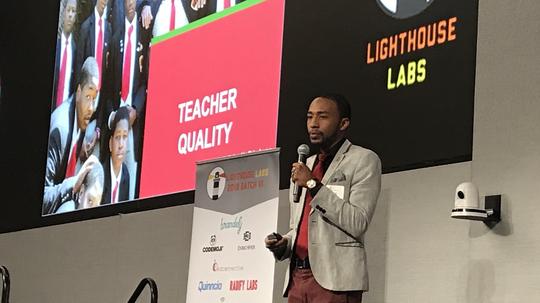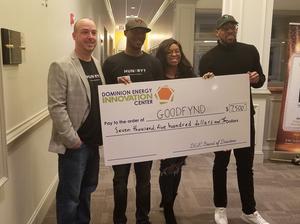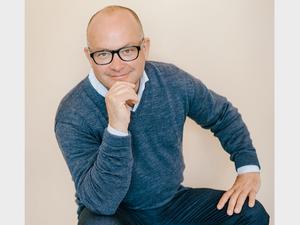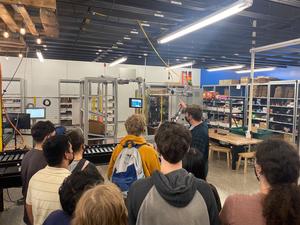
No one knows better than an entrepreneur that growth is a matter of learning, a process rather than a product — no one, that is, except a teacher.
On Nov. 15, education and entrepreneurialism celebrated the inaugural anniversary of what could prove a long and fruitful partnership in the River City when Lighthouse Labs hosted its 2018 pitch competition, the culminating event of its sixth accelerator and the first to take educational technology as its major focus.
“We pay attention to where there are gaps and where there are founders that need support, and certainly within edtech and education that remains an area for opportunity,” said Dan Myers, Lighthouse Labs’ managing director.
This fall, four of the eight startups that took part in the incubator’s sixth cohort were edtech enterprises.
Codemoji teaches elementary-age students to code using their second language in this digital age, emojis. Quinncia helps college students hone their interview skills through the use of a bot and machine learning. Radify Labs offers students an eight-week online program to help fine-tune their technical skills and find jobs. And EdConnective offers school districts a platform for new teachers to receive 1:1 feedback and mentoring from experienced educators.
To Lighthouse Labs executive director Todd Nuckols, the desire to cultivate such companies is more than a dollars-and-cents investment: it’s about “the ability to give to community and lift community.”
“We want to be part of that solution,” he said.
Edtech, however, has tended to occupy an uneasy position in the startup ecosystem. Because educational outcomes can be slow to manifest, investors eager for short-term payoffs may put their money elsewhere.
“The potential of education, and subsequently edtech, cannot be measured by deal volume, capital, monthly active users or quarterly cash flow. Instead, there must be different measurements that center around learner impact,” Patrick Brothers told TechCrunch.
While global edtech investment was estimated to be $9.5 billion in 2017, only about 20 percent of those funds went to companies working in pre-K–12 or higher education, according to Forbes, with the bulk going to consumer companies and corporations. That has led some edtech entrepreneurs to feel like funding for the sector is scarce — a belief that may dissuade some founders from focusing on the area.
“There’s no initial investment in edtech,” Quinncia founder Himal Ahuja told Inno in September. “At least in the startup stage, it doesn’t seem like the angel money or the seed money is there.”
It was partly in response to that perception that Lighthouse Labs chose to highlight edtech in its sixth cohort, striving, in Myers’s words, to nurture “an environment where edtech companies can find customers, mentors and investors — three critical pieces they need to succeed.”
Richmond is a natural place to foster such an ecosystem, he noted. D.C. has been rapidly becoming a center for edtech, and Virginia has one of the nation's best higher education systems.
One place edtech entrepreneurs may be able to look for funds and guidance is Capital One, which serves as one of Lighthouse Labs’ corporate partners and played host to the accelerator’s fall Pitch Contest.
Prior to the sixth cohort, “I didn’t even know there was an edtech,” said Joe Whitchurch, Capital One’s vice president of business analysis and a member of Lighthouse Labs’ board of directors. But after watching the four startups go through the accelerator, he said he perceived “clear synergies” between the enterprises and Capital One’s aims, particularly its Future Edge initiative, which provides investment in digital skills education and training.
For Bolzan, Codemoji’s founder — who took home second prize in the pitch contest, which netted the startup $3,500 on top of Lighthouse Labs’ base funding of $20,000 to all accelerator participants — Richmond made an impression. Although Bolzan planned to return to Codemoji's home base of Chicago after the end of the program’s 13 weeks, he recently hired a salesperson to stay behind in the River City.




